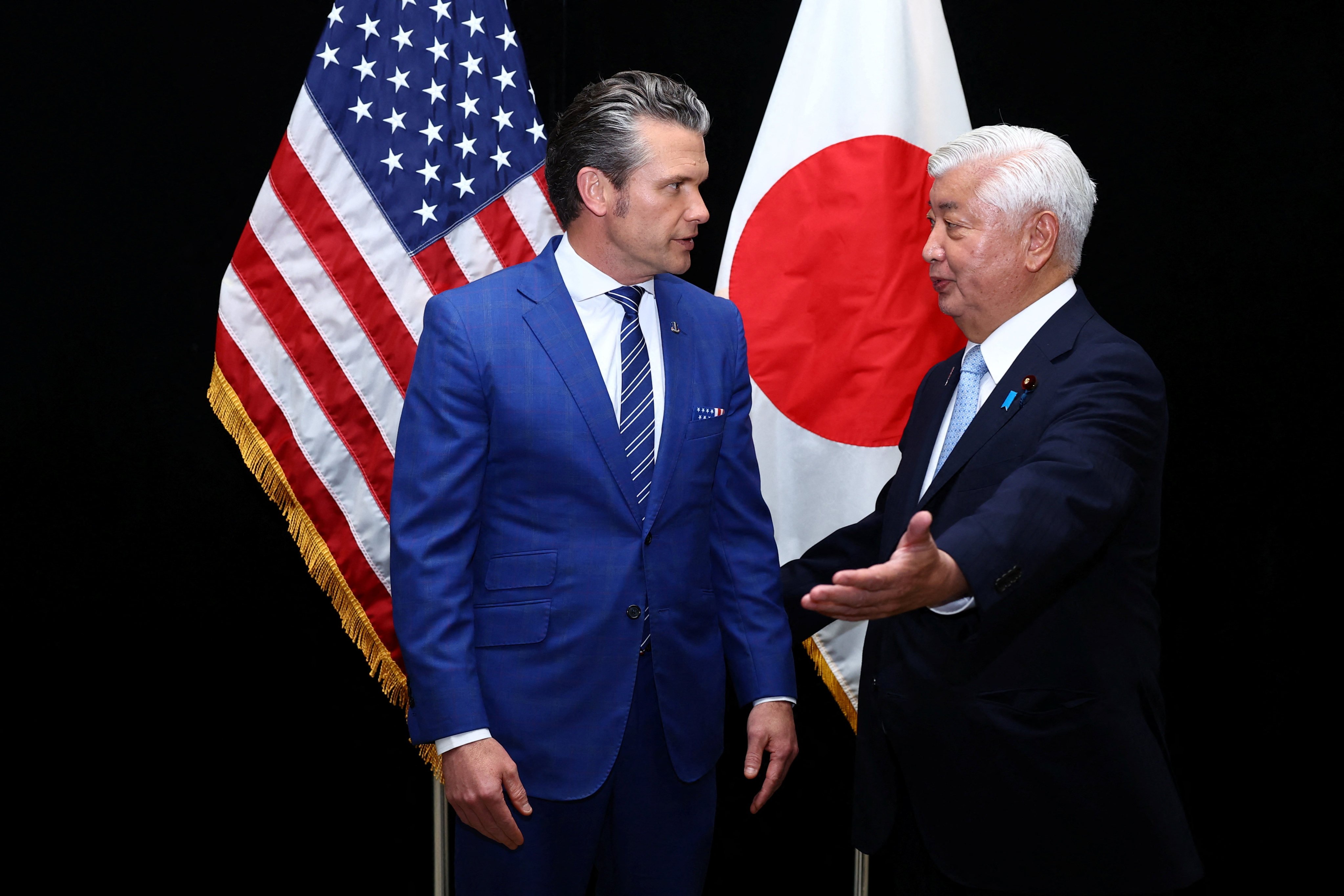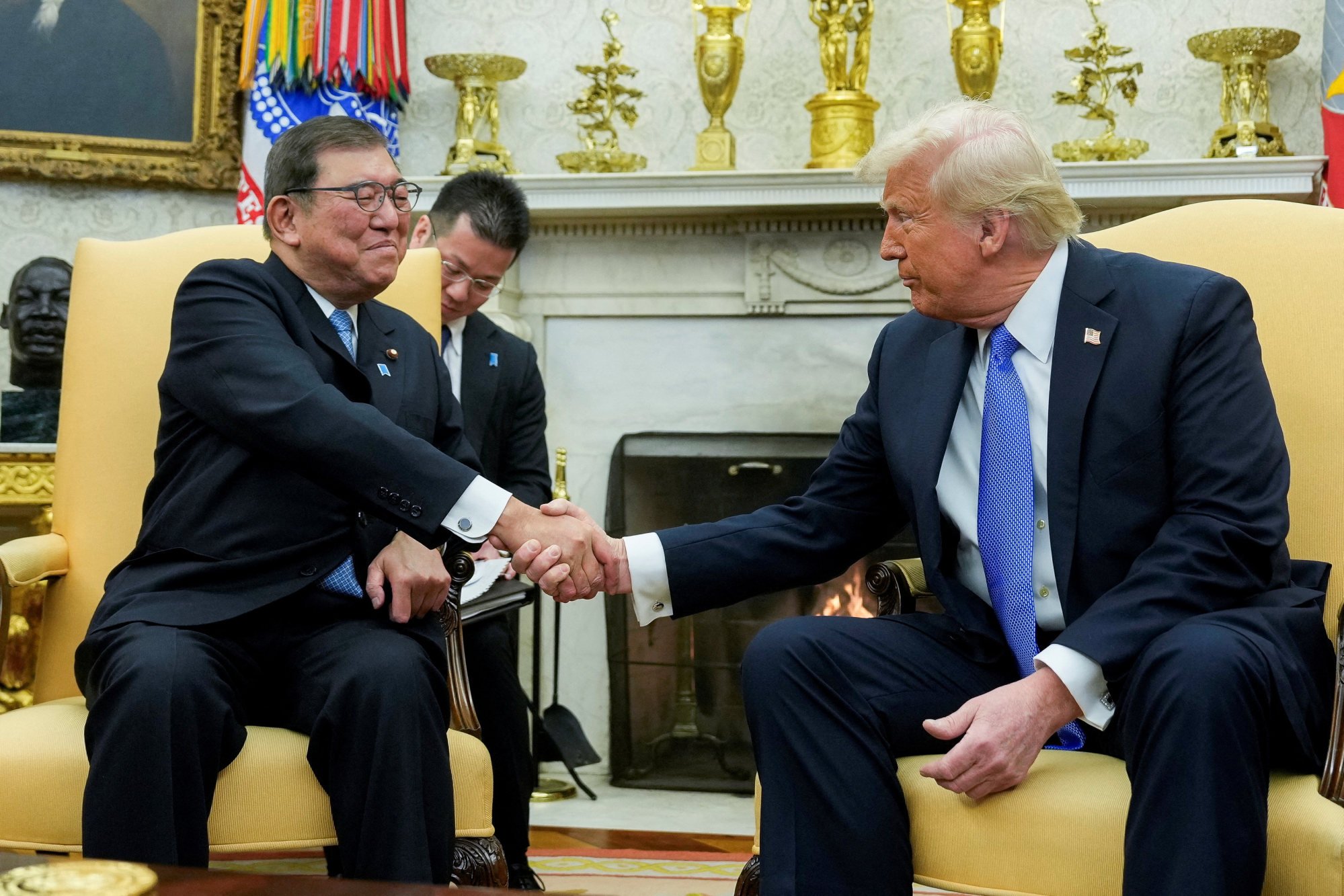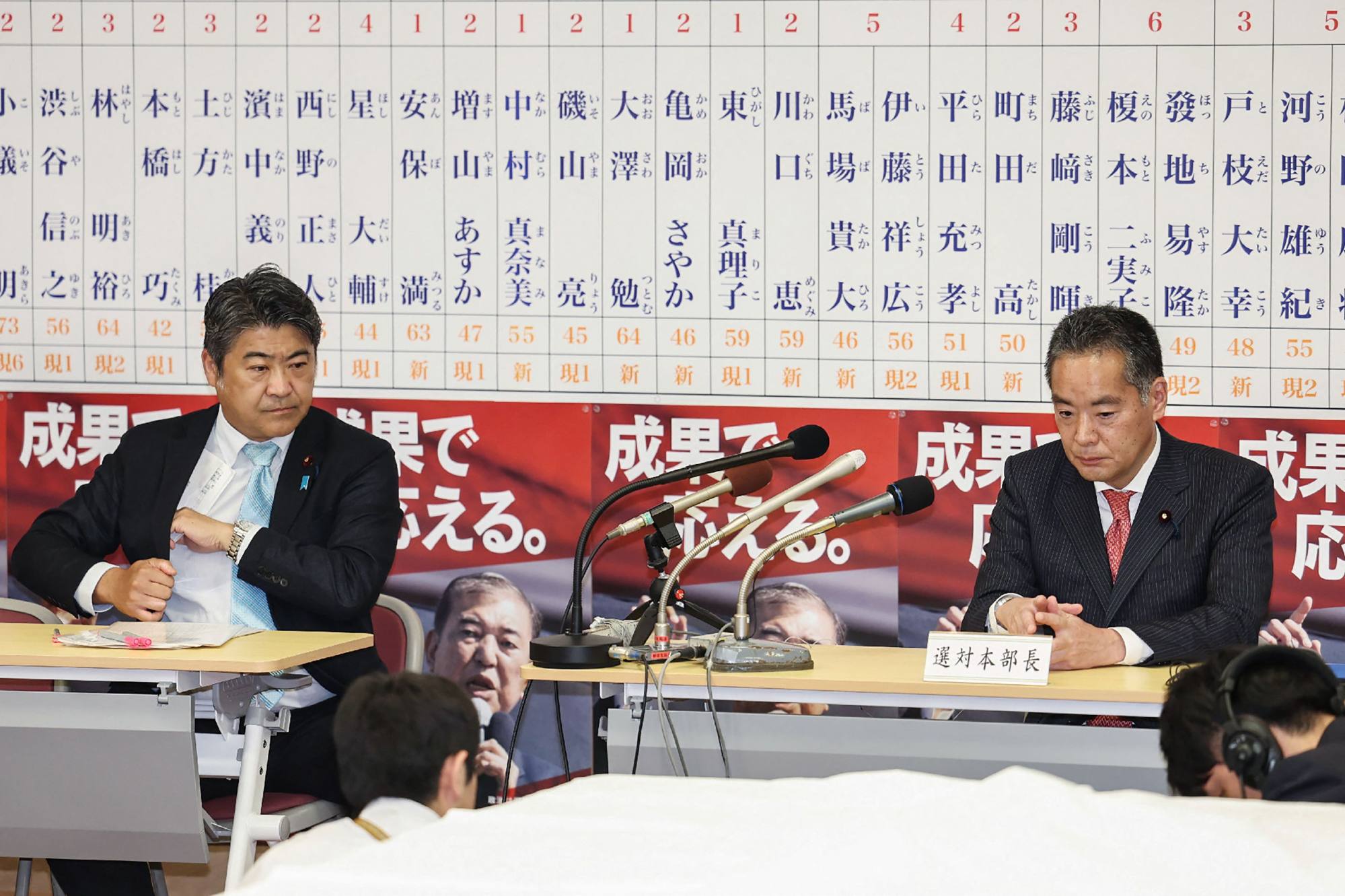‘Tactical move’: Japan just cancelled key US security talks. Why?
Behind the scenes, analysts say a quiet push for domestic stability shaped Tokyo’s surprising diplomatic manoeuvre

Japan’s abrupt cancellation of scheduled security talks with the United States reflects a calculated effort to deflect mounting American pressure and prevent Washington from intertwining trade disputes with defence obligations, analysts say.
Tokyo is also angling to re-engage with Washington after the Upper House election on July 20, hoping to negotiate from “a position of domestic strength”, according to observers.
The Financial Times first reported on Friday that Japan had called off a planned high-level meeting after the Trump administration demanded Tokyo increase its defence spending.
US Secretary of State Marco Rubio and Defence Secretary Pete Hegseth had been expected to meet Japanese Foreign Minister Takeshi Iwaya and Defence Minister Gen Nakatani in Washington on July 1 for the annual “2+2” security talks.
But Tokyo cancelled the meeting, according to the report citing unnamed sources, after the US had pressed Japan to raise its defence budget to 3.5 per cent of gross domestic product – up from an earlier request of 3 per cent.
Japan’s Nikkei newspaper reported on Saturday that Washington was now pressuring all its Asian allies, including Tokyo, to target defence spending as high as 5 per cent of GDP.
A US official, speaking to Reuters on condition of anonymity, confirmed that Japan had “postponed” the meeting several weeks ago but declined to specify the reason.

Yoichiro Sato, a professor of Asia-Pacific studies at Japan’s Ritsumeikan Asia-Pacific University, told This Week in Asia that the cancellation of the 2+2 talks was “a tactical move” by Tokyo.
“Japan has been trying to keep the tariff talks and the defence talks separate,” Sato said, noting that dealing with tariffs alone is as much as the “weak” administration of Prime Minister Shigeru Ishiba “can handle”.
“Any additional US pressure through issue linkage across onto the defence issues would simply invite a paralysis in the Japanese government” Sato added.
Besides the current 25 per cent levy on its auto and steel exports to the US, Japan faces a 24 per cent “reciprocal” tariff on all other exports beginning July 9.
Tom Corben, a research fellow at the United States Studies Centre at the University of Sydney, said that US demands for increased defence spending were not the only reason for the talks’ postponement.
“You don’t just outright cancel a 2+2 meeting,” he said, observing that Washington’s demands of Tokyo echoed those made of other regional partners.
“It is a very crude measure of whether or not a country is ‘serious’ about its national defence or whether an alliance is fit for purpose,” Corben said.
Instead, he suggested that Tokyo was keen to approach Washington after next month’s Upper House election, when the government could, ideally, negotiate “from a position of domestic strength”.

Yet Ishiba “is in a bit of a bind”, Corben said, as entering alliance talks on the eve of an election when the ruling Liberal Democratic Party (LDP) is expected to lose yet more ground to the opposition “does not exactly reflect a strong mandate”.
“But nor would coming to that alliance discussion after what is expected to be a poor result for the ruling party,” he said.
The LDP’s crushing defeat in Sunday’s Tokyo metropolitan assembly election – widely seen as a bellwether for the future of Ishiba’s cabinet – was fuelled by public frustration with persistently high prices.
Corben said Ishiba was right to insist that any decision on defence spending must depend on Japan’s actual capabilities rather than arbitrary budget targets.
“Japan needs to assess where its defence budget and strategy are appropriately aligned to meet the country’s national security objectives. Cooperation with the US is part, but not the sum, of those aims,” Corben said.
He added that there was an active debate in Japan’s defence policy circles as to whether to raise spending above 2 per cent of GDP. Japan currently spends about 1.8 per cent, with plans to reach 2 per cent by 2027.
According to Corben, considerable political and fiscal constraints make a jump to 3 per cent – let alone 3.5 or 5 per cent – highly unlikely. Public resistance to tax increases and concerns over debt, compounded by an ageing population and rising social security costs, place further strain on the national budget.
Oil matters
Energy security is also weighing on Tokyo’s calculations. Sato said that Japan had resumed imports of Russian oil, having phased them out gradually since May 2022 after Moscow’s invasion of Ukraine.
Last week, Japanese media reported that the country received a shipment of Russian crude via Voyager, a vessel under US and EU sanctions.
Despite international sanctions, Japan is permitted to import Russian oil on grounds of energy security. The Economy, Trade and Industry Ministry told local media it had confirmed with US authorities that, owing to a waiver, there was no risk of secondary sanctions from importing oil using the sanctioned vessel.
With conflict in the Middle East and Iran threatening to close the Strait of Hormuz, Sato said this would temporarily halt not only Iranian oil exports to Japan, but also oil and gas shipments from all nations in the Persian Gulf.
“This too has likely been communicated with and concurred by the US,” he said.
Iran’s state-run Press TV reported on Sunday that parliament had approved a plan to close the strait but said the final decision lay with the Supreme National Security Council.

The Strait of Hormuz is one of the world’s most important shipping chokepoints connecting the oil-rich Persian Gulf to global markets. Roughly 20 per cent of global oil supplies are transported through the strait, the northern flank of which is controlled by Iran.
Trump’s sudden decision to bomb three Iranian nuclear facilities over the weekend, following months of Israeli attacks on Gaza, Iranian proxies and Iran itself, has stoked fears of a broader regional conflict – despite the US president’s insistence on Tuesday that a ceasefire was now “in effect”.
Japan had previously “even-handedly” condemned the escalation, Sato said, but had since shifted “to show understanding of Israel’s concerns”.
On Monday, Tokyo pledged continued diplomatic efforts to defuse tensions in the Middle East and said it was studying measures to respond to a possible surge in energy prices.
Ishiba on Monday cancelled a planned trip to attend a Nato leaders’ summit in the Netherlands, citing the escalating crisis in the Middle East.